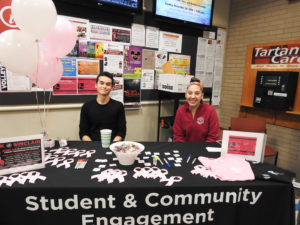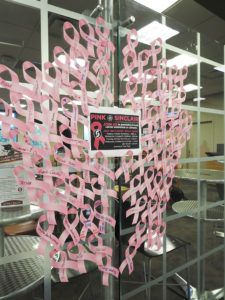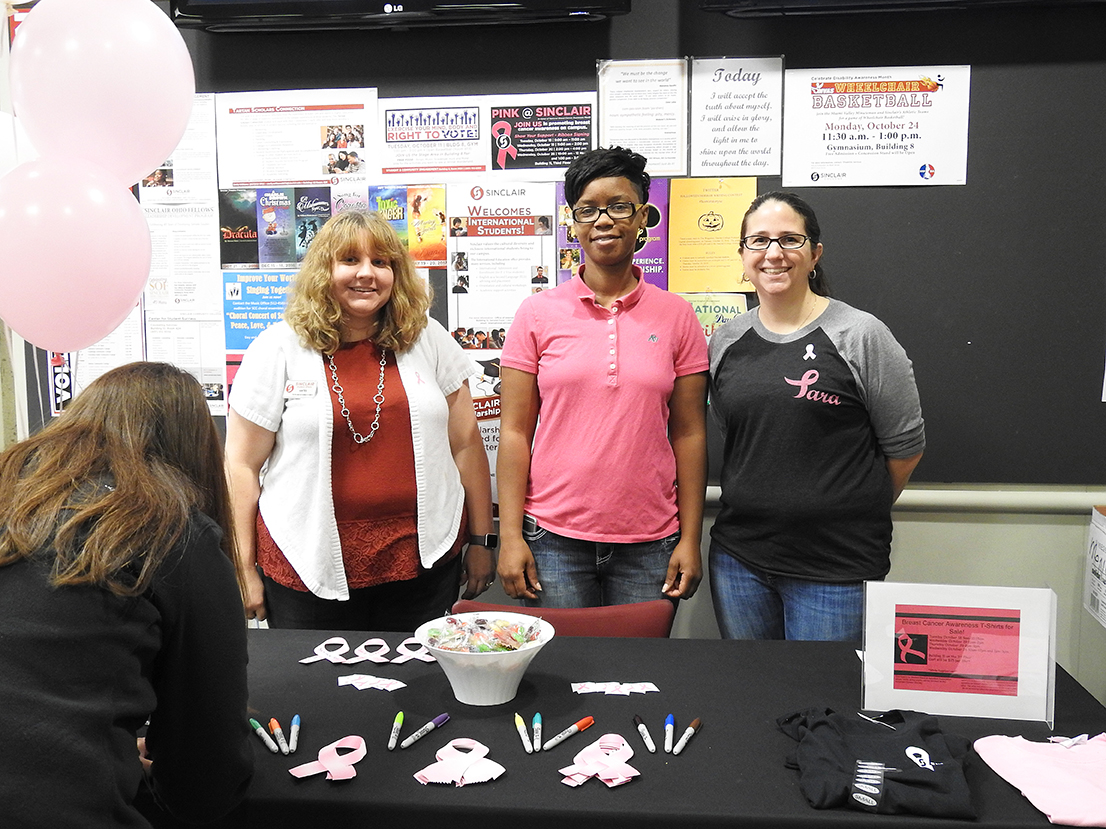As we all know October is the month that we go pink. What does this actually mean? It means that it is the month for Breast Cancer Awareness and pink happens to be the color to represent becoming a part of the awareness movement.
We may all know what Breast Cancer is, on a certain level but do we understand the importance of this month and what it actually means to those who have lived through it?
Angela Neargarder has been a survivor of Breast Cancer since February of this year. Her story began in July of last year when she went in for a yearly mammogram.
According to Neargarder, her doctor visit turned out clean, despite the fact that during her mammogram pus had come out of her right nipple. She left the doctor’s office with the assurance that this did not mean she had cancer.
It wasn’t even six months later that Neargarder would return to the doctor to find out that she had breast cancer. Neargarder explained that breast cancer ran in her family and it was actually her own mother’s diagnosis in 1999 that convinced her to begin getting annual mammograms.

Neargarder said she was disappointed when she diagnosed despite her proactiveness.
“I was disappointed that I was diagnosed with breast cancer. I felt a small sense of defeat because I am the diligent one to get a double feel and I am the one who kept up on my exams,” she said.
However, it was because of her keeping up on her exams that they were able to catch the cancer in an early stage 2, which meant that for Neargarder she wouldn’t have to do radiation or chemotherapy treatments. After being diagnosed in December and battling with insurance companies to get her surgery, Neargarder was finally able to get her first appointment in January and her double mastectomy was done in February.
Neargarder created a support page on Facebook called “Angel A Until She Wins.” On this page you can find details about her journey with breast cancer and news on her reconstruction surgery this past summer after her cancer was removed.
She also uses the page to keep pressing people to get mammograms and to celebrate October as Breast Cancer Awareness month, sharing her story with those who like the page and sending letters of encouragement to those going through the same thing that she did.
Neargarder explained how she learned of breast cancer from both awareness and first hand experience.

“It is through my mom’s breast cancer and the month of October I learned that breast cancer is the second most common kind of cancer in women and yes men can be diagnosed with breast cancer also,” she said.
Today, Neargarder still has to watch what she eats because breast cancer is life changing. Her cancer was fed by estrogen, meaning it could have spread to other female areas. For the next five years Neargarder must take Tamoxifen, a powerful drug that helps prevent cancer, to block estrogen from being fed into her body which puts her in menopause.
Sinclair has also been participating in Breast Cancer Awareness Month. The campus has events to help promote student awareness.
Here at Sinclair in October each year, there’s a Breast Cancer Awareness Ribbon Signing event in Building 11 on the third floor. Sinclair also takes part in the Breast Cancer Walk and has a pink volleyball game to support the cause.
According to Kates Brommeland, the Coordinator of Student and Community Engagement and who is also in charge of running the traditional ribbon signing at Sinclair, the event is mostly to spread awareness across the campus.
According to Brommeland, it is giving students a chance to honor those they know who have or have had breast cancer and give them the insight of how important it is to be aware of the dangers of breast cancer. The event is free and strictly to support and spread awareness to the students.
This month understanding breast cancer is more than just getting a surgery to remove it, as Neargarder said, it’s life changing. Staying aware, even outside of October is important and it may just save your life.
Lindsey Huff
Intern


